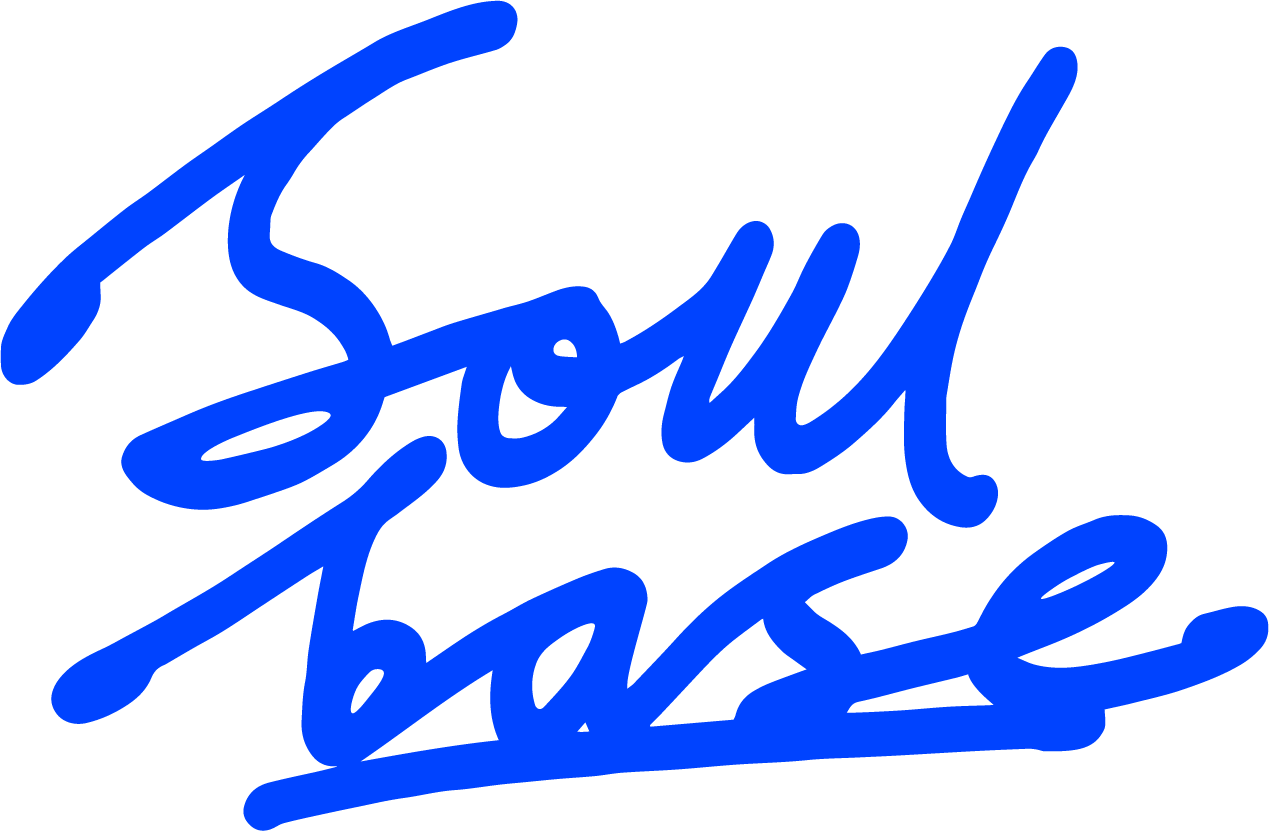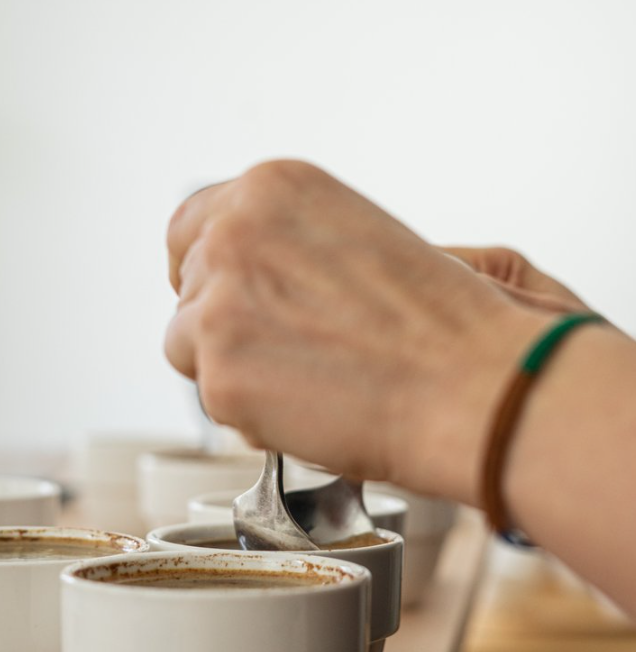SOULBASE Talk:
Janine de Laar
After water, coffee is the most popular drink in the world. And there are so many topics around coffee and so many people who work in and with coffee – from stylish or cozy coffee shops to pop-up cafes to cupping classes to people like Janine de Laar, the face behind @moincoffeelady. You can truly say Janine’s life circles around coffee, as she now works as a coach, educator and the founder of a coffee network where she brings females working in the coffee industry together.You are a Q Grader. Can you give us an insight into what Q Grading is and how long an education lasts?
To become a Q Grader, you have to pass more than 20 sensory tests in six days to get your certification, which allows you to score coffees with points. You can compare a Q Grader with a wine sommelier. As I’m sure you can imagine, it takes more than these six days to prepare for the exam. The most important way to train yourself is to cup as many coffee qualities as possible. Cupping is the professional way of tasting as many coffees as possible at the same time to be able to compare them with each other. It's important to focus on the coffee qualities you are the most familiar with and to step out of your own bubble for the most objective view possible. This can take months or even years depending on the time you focus on your training next to your daily work life.
Do you ever get bored talking about coffee?
Coffee has so many aspects and is so richly faceted; it's hard to get bored. But I must confess, since I started my own business and coffee became even more a part of my life, I sometimes truly enjoy drinking a cup of coffee without evaluating the cup profile afterwards. It became more important for me to take care of myself and plan some coffee time-outs.Hi Janine, we are so glad that you took the time from your busy schedule. The must-ask question: did you drink coffee today and what kind?
I always start my day with a nice handbrew. I really love drinking filter coffee. At the moment, I have some truly unique and special coffees that I can choose from because I just came back from the world coffee championship in Melbourne, and some really lovely coffee people shared their competition coffees with me. In five words, what does coffee mean to you?
Enjoyment, fun, awareness, personal progress, community.
You have worked in the coffee field for a while, and you now coach and educate on coffee sensory. For those who are not familiar with the term “coffee sensorik,” can you explain what it stands for and why it is important to train in it?
Coffee Sensory is the term for what you taste and perceive when you drink a cup of coffee. The whole taste experience is split into different parts: aroma, flavor, body, acidity and balance. In a professional context, we talk about the “cup profile.” Training your own sensory skills allows you to define the cup profile, and at the same time, you can maybe connect certain taste experiences with optimizing your brew or your roast. The more your palate is trained, the more you will enjoy all kinds of beverages or food. For me, it’s absolutely connected with awareness, and if you like what you consume, a positive feeling.Have you always been passionate about coffee or did you always know you wanted to work in the coffee industry? If you didn’t work in this field, what other job could you see yourself doing?
I started to drink coffee when I used to work in restaurants or for events as a project manager. This job was connected to many working hours and night shifts. So, the caffeine in my milky coffee beverage loaded with sugar was the reason to drink coffee. When I changed my job and started to work for a big coffee company, I soon realized that coffee can do more than taste bitter and strong.
Drinking my first filter coffee with flavors of cherry and milk chocolate with some rumy notes had a strong effect on my work and the skills I wanted to learn. It was like, “Okay, I wanna learn how to get the best out of such coffees.”There is truly no other job that I would love to do. Believe me, in my past, I really thought a lot about that.
What are topics that you would like to see more openly discussed in the coffee world?
I think there are still a lot of topics to discuss openly. For example, taking a look at species other than arabica caused by climate change or how we can change some rules for coffee competitions to make it more fair. When we start to discuss certain topics, I would love to see it in a respectful way.In your sensory classes, you teach coffee language for coffee professionals and customers. Can you share what we can understand about coffee language and why color, shapes and our five senses play a role there?
The good news is that everybody can train their sensory skills! Let's take a look at the term “body.” To describe the body in coffee, you need to know the right words for mouthfeel or texture, viscosity and weight. Once you get familiar with the right words to describe different sensations, you’ll get more and more detailed to evaluate the cup profile. In my classes, I teach exactly these words. One special class is the multisensory course, where I guide you through different tastings – such as drinking the same coffee from different cups. The same coffee can taste more sour when the coffee is served in a yellow or white cup, for example. Our brain connects these colors with fruits like lemons and transforms this connection to the coffee we drink at that moment. There are a lot of “wow” moments when I give these classes.
One of your biggest approaches is to bring females in the coffee field together, and you created a network where you are able to gather and exchange with each other. When did you know there was a demand for that and why do you feel it is important to create a safe and authentic space for females in the coffee industry?
I heard so many stories, and was also a part of such stories, where women weren’t treated the same way as their male coworkers. As a woman, you need so much more confidence to stand up for yourself when perhaps a man is calling you “Kaffee Maus.” This Coffee Lady Network is not about withdrawing from the male world; it’s about getting more confident and strong to resist inequality in a respectful and straightforward way. When you’re not coaching and training people in the coffee world, what are some of your favorite places to be?
I love to be surrounded by nature. Being outside (without my mobile phone!) truly refills my energy. And yeah, when you come back home after a lot of traveling, it's wonderful to spend some time at home. Lübeck is really a beautiful place to be.
Where can people find out more about your next coffee sensory class and how can people reach you?
I’m really active on Instagram @moincoffeelady, where I always post my upcoming classes. You can also sign up for my mailing list on my website. When you like to plan a sensory class with your team or have an individual training plan to increase your sensory skills, just write or text me, and I will work something out for you. @moincoffeelady






